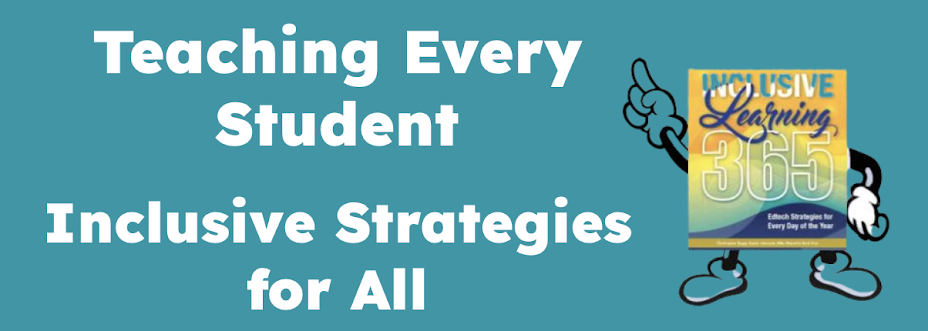There are many students in our classrooms who struggle with reading grade level material due to decoding, fluency or automaticity issues. Too frequently, I hear of teachers who read text to these struggling learners as an accommodation strategy, not just once, but throughout the day.
There are many students in our classroom who struggle with producing written work according to teacher expectations due to difficulties with the mechanics of writing, executive function issues, poor legibility or a variety of other issues. Too frequently, I hear of educational assistants who scribe for these struggling learners as an accommodation strategy, not just infrequently, but throughout the day for all written work.
Who started this trend? And, why? Is this good teaching? An effective instructional method? What is the educational rationale for this?
If you can sense my frustration, it’s because this is happening too often in our schools and this must stop!
The availability of technology makes dependence upon adults for accessing materials and demonstrating what students know unnecessary. Students can be taught how to use text-to-speech to hear the text read to them and they can listen repeatedly as needed without asking an adult to read it to them again if they didn’t get it the first time. In addition, research shows that reading skills improve when text-to-speech is combined with highlighting each word as it is read. Makes sense to me!
When we encourage adult dependence, we are allowing our struggling readers to fall further behind. We are encouraging learned helplessness. Is this good teaching?
Similar issues with scribing. A few years ago, I worked with a student who was a senior in high school. A paraprofessional was assigned to work with her since early elementary grades to help with content acquisition (she had difficulty with reading) and to scribe for her (she had difficulty getting her thoughts on paper). She was ready to graduate and yet could not even write a paragraph! What had been done to her? The paraprofessional couldn’t continue working with her after graduation! The educational team failed her....
A great disservice could have been avoided by offering effective interventions that promoted independence instead of dependence.
Can we agree to put an end to this pervasive practice?
Technology supports exist which provide a variety of options to promote independence. Use them in your classrooms! Now, this IS good teaching!

You make a very good point. I wonder if we have many who work with students who have not thought of using these tools? I will definitely bring this to the attention of my Spec Ed teacher and we'll discuss how we might be able to increase student independence instead of creating dependency. Do you have any suggestions for tools to use?
ReplyDeleteKelly,
ReplyDeleteThanks for stopping by. You bet I do! (This is my passion) Check out a previous blog post that lists a number of free resources - this is a beginning. Feel free to email me with any other questions. http://teachingeverystudent.blogspot.com/2007/02/free-technology-toolkit-for-udl-in-all.html
I also created some teachertube videos that show how to use some of the tools at http://tinyurl.com/ysd62g
If I can be of any further assistance, please let me know.
Karen
I am not an educator, but I do have kids in school. I fully agree with you that it is important that children gain independence. Technology can be a great help there, but we should also be careful that the technology does not become an excuse not to teach kids to manage without technology too. For example, using text to speech software to aid struggling readers is great, but should be part of a strategy to teach those kids to improve their reading skills so that when they ever face the need to read something without a computer or device around they will not be completely lost. In my view, and I am developer of, among other things text to speech software, technology use should be part of a good educational strategy adapted to each kid, and not be a replacement of a good education strategy. Technology, even in today's age can only take you so far... When ever possible technology should not replace absent reading and writing skills, but be used to improve, nuture and help develop those skills while at the same time easing the student's life so that a student struggling with reading does nor have to get behind on other subjects simply because of reading problems. I live in Europe and here technology use in schools is probably not yet as pervasive as in some parts of North America. there are times whne I regret that, but there are also times that I am gald that traditional approaches to reading and writing problems are not simply replaced by throwing technology at the problem, which I am sure some teachers do.
ReplyDeleteI agree with you that technology is an accommodation which occurs simultaneously with remediation. It can not replace remediation. Unfortunately, it is not typically being used as an accommodation and many students are falling further behind and end up hating to read. Students who benefit from text-to-speech use it when given the opportunity to help them access content.
ReplyDeleteKaren,
ReplyDeleteCan you specify the research that shows that text-to-speech with highlighting improves reading scores? I am teaching a course in UDL and New Technologies this summer and would love to have a reference for this.
B. Poss
Beth,
ReplyDeleteCheck out these articles at the Kurzweil site - granted they were conducted by Kurzweil but they do validate the effectiveness of text-to-speech software.
http://www.kurzweiledu.com/research.aspx
Anecdotally I have found it effective for my son who is a junior. His vocabulary has greatly increased since he was "allowed" to have exposure to grade level vocabulary using text-to-speech. He reads all his English books either in Kurzweil on the computer, or converts them to MP3 and listens to them with his iPod while following along in the book.